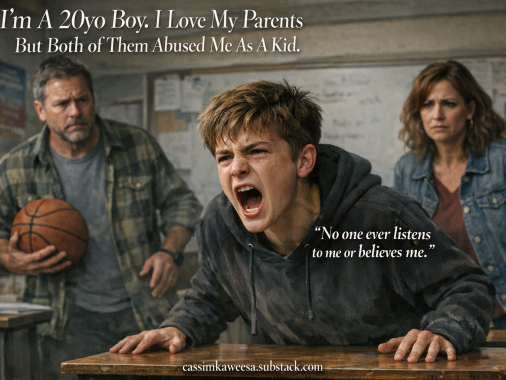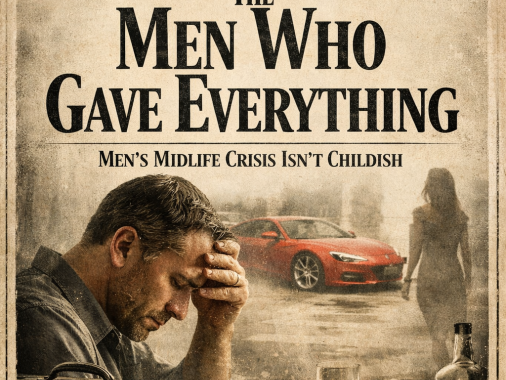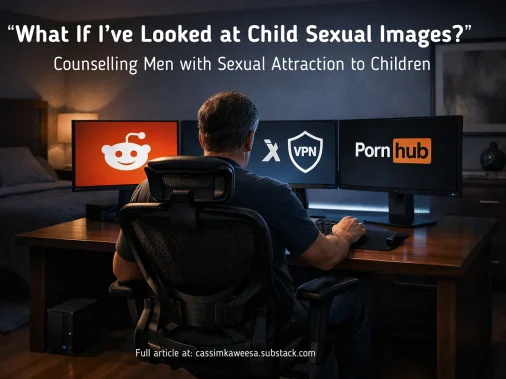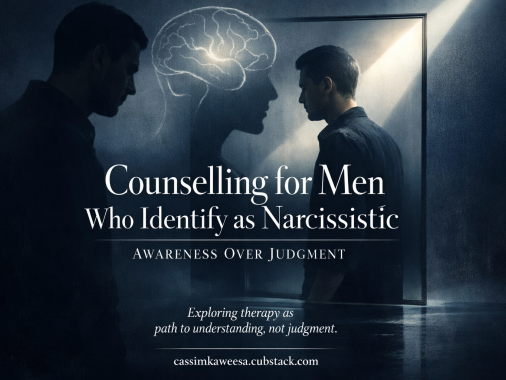
I’m A 20yo Boy. I love My Parents But Both of Them Abused Me As A Kid: There are people who have it even worse…right?
Common Justifications or Minimisations of Abusive Parenting “They were young and did the best they could.” “Every parent wants the best for their kids.” “You should be grateful for what you have.” “Other kids have had it worse than you.” “It’s just a bit of hitting / a slap on the wrist.” “Everyone has been […]

Men’s Midlife Crisis = Mocked, Menopause = Respected: The Men Who Gave Everything and Men’s Midlife Crisis Isn’t Childish
“Family comes first” “My wife, my world” “Children are the future” “Blood is thicker than water” “A father’s duty is never done” “Happy family, happy life” “A man provides, a man protects” “Keep the peace at home” “Do it for the kids” “Boys don’t cry” “Man up” “Do your duty” “Put others before yourself” “Take […]

“What If I’ve Looked at Child Sexual Images?” Counselling Men with Sexual Attraction to Children
A total of 81,426 Londoners contacted the Lucy Faithfull Foundation’s Stop It Now service in 2024 - around one in three UK callers. And unsurprising for me as a counsellor but maybe to you, is that women now are one in 10 offenders. I have said in previous articles, that 60-75% of my male clients […]

Counselling for Men Who Identify as Narcissistic: Awareness Over Judgment
How Some Narcissists See Other People (People as tools, threats, mirrors, or competitors) “If people know that you care about them, they’re going to use that.” “If they don’t know that you care, they’ll keep chasing you — and that gives you the upper hand.” “You’re not important enough for me to enjoy hurting you.” […]
Get in touch
Feel free to contact me if you have any questions about how counselling works, or to arrange an initial assessment appointment. This enables us to discuss the reasons you are thinking of coming to counselling, whether it could be helpful for you and whether I am the right therapist to help.
You can also call me on +44 78528 98135 if you would prefer to leave a message or speak to me first. I am happy to discuss any queries or questions you may have prior to arranging an initial appointment.
All enquires are usually answered within 24 hours, and all contact is strictly confidential and uses secure phone and email services.
